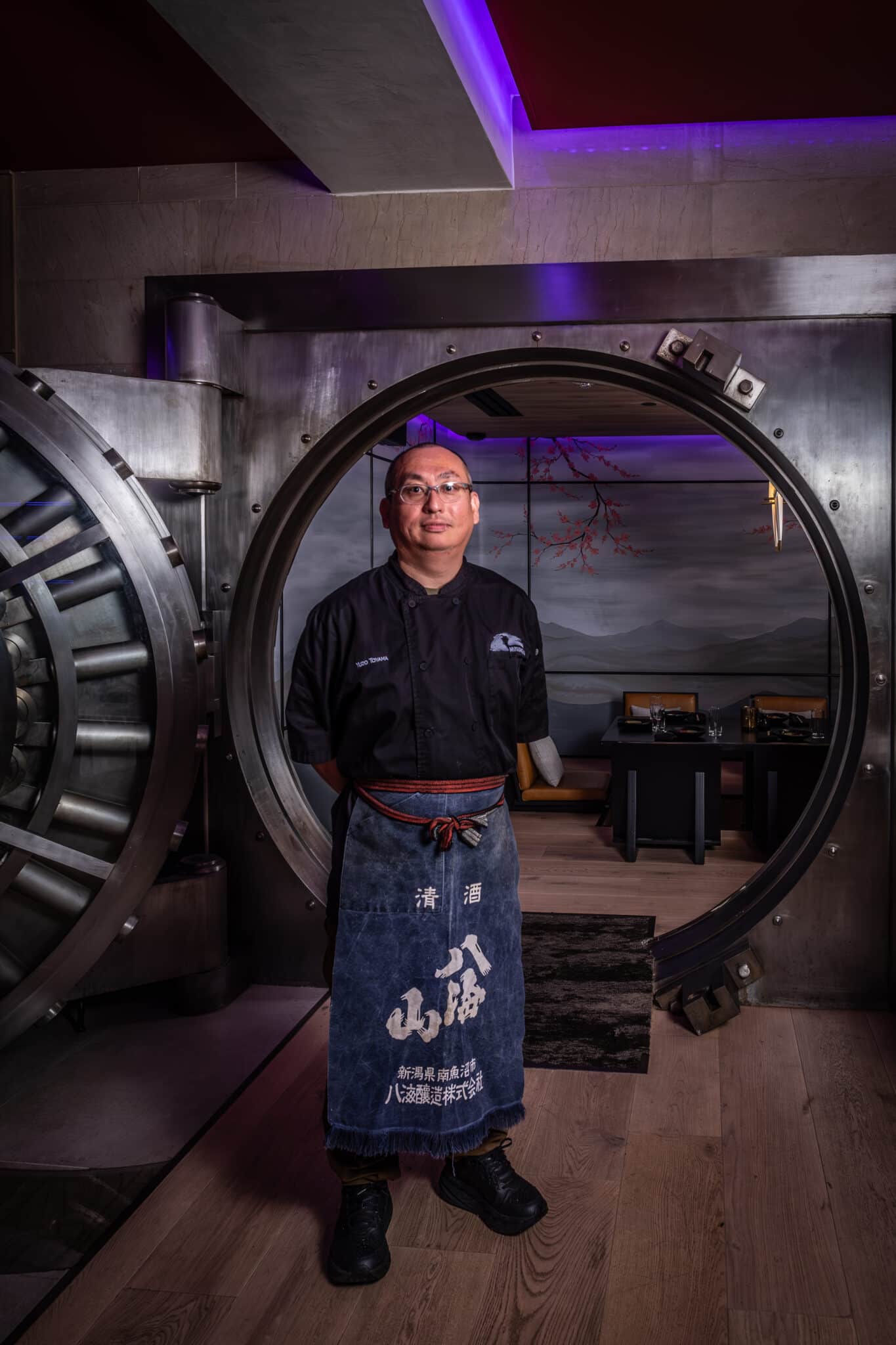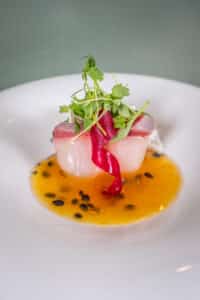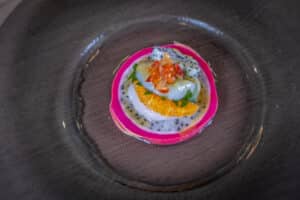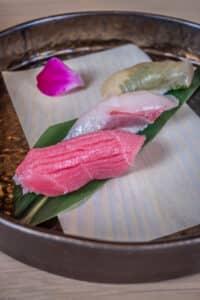
On a roll: Musume is already carving out its niche in the Fort Worth dining scene — but in sushi, not steaks
By Scott Nishimura
Photography by Olaf Growald
Josh Babb calls Musume — the already popular basement sushi restaurant he and partners opened in the new Sandman Signature Fort Worth Downtown Hotel this summer — a concept years in the making.
“It’s really about my relationship with the owner of the Dallas Stars,” Tom Gaglardi, Babb said in an interview.
Babb was co-owner of a Dallas restaurant called Kenichi when its investment group announced in 2017 that the Victory Park dining spot would close when its lease expired. The group then opened a sushi restaurant called Musume, or “daughter” in Japanese, in Dallas’ Hall Arts District. Gaglardi, a Kenichi fan, came in as an investor in Musume Dallas.

Fast-forward to when Gaglardi decided to acquire the historic W.T. Waggoner Building in downtown Fort Worth and convert it to his Sandman hotel brand. Gaglardi wanted Musume as his hotel restaurant, Babb said.
“I couldn’t pass up that opportunity,” Babb said, although he wasn’t sure at the time that sushi would work in Fort Worth.
“I knew nothing,” he says. “I wasn’t sure. The hotel is in a really vibrant area of Fort Worth. [The restaurant] is in a basement.”
Joking, he said, “It doesn’t do us any favors that I’m from Dallas. There was a lot of apprehension about ‘will this work? Will it not?’”
Musume’s management team recruited Yuzo Toyama, who was a partner in a sushi tapas restaurant in Oklahoma City, as executive chef of the Fort Worth restaurant.
“We ran a national search about a year ago, trying to find a guy,” Babb said. “We found the guy in Oklahoma.”
Babb visited Toyama in Oklahoma, and the management team had Toyama visit the Dallas restaurant and cook. “I really, really liked his food, but I was nervous,” Babb said.
Toyama sources his fish from Japan to Honolulu, and he alternates travel to Asia and Europe from year to year, hunting down new ingredients. Musume’s sushi focuses on sashimi. Toyama’s eight-course omakase chef’s tasting menu — seven courses of sushi and one dessert — makes creative use of ingredients such as dragon fruit, passion fruit and strawberry as accoutrements. Only two of the sushi courses we tried during an omakase dinner in August included rice.
“There’s a lot of different ingredients in the world people haven’t seen,” Toyama said in an interview.
The first course of his omakase, for one, is raw scallops served atop a slice of dragon fruit, with a Balinese sambal chili and wasabi miso, for an explosive flavor combination of sweet, peppery and salty.

The dragon fruit “is a very common fruit in the United States right now,” Toyama says. ”Everybody can get it, but not everybody knows how to use it.”
“To me, what makes Yuzo so special is he really, really, really cares about hospitality,” Babb says. “He really cares about people.”
Toyama meets daily with the restaurant staff and prepares something new for them to try, “just to educate the team,” Babb said.
As a hotel restaurant, Musume Fort Worth is open for breakfast, lunch and dinner, and its menus contain a mix of offerings, including breakfast classics and steaks. Customers, who Babb presumes to be heavily local because the hotel isn’t in convention season, have surprised the team.
“I thought we would sell a lot of steaks, because we’re in Fort Worth,” Babb said. “Instead, we’re selling a ton of sushi.”
Babb sees Musume as now occupying its own niche in Fort Worth.
“Now that we’ve been here a couple of months, we sort of fill a void,” he said. “There’s nothing like us in Fort Worth. In Dallas, we get compared a lot.”

That’s not to say that everything has worked so far.
“Tableside ramen, I thought that was going to be the biggest hit ever,” Babb says. “It’s been good, but it’s 107 degrees. I’m not sure people want hot soup. We’ll see in the winter.”
One thing Babb is certain of: “I tell Yuzo every day I’m looking forward to working with him for the next 20 years.”
